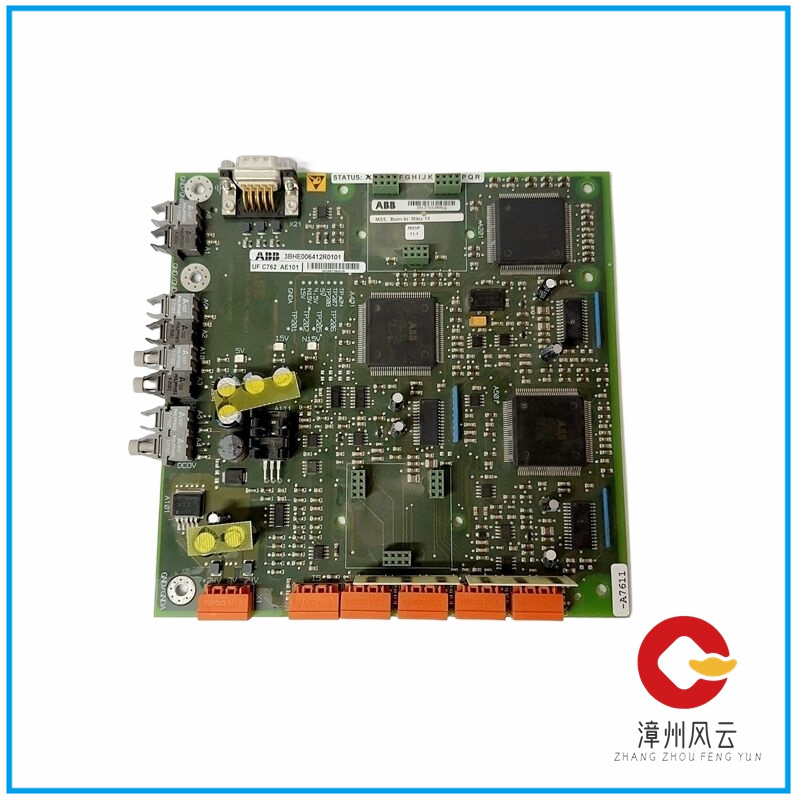Abstract: The important interference factors that restrict the safe, stable, and reliable operation of the DCS system in power plants are power supply, signal classification and cable laying, as well as the design, construction, and maintenance issues of the grounding system; By analyzing the anti-interference requirements of DCS for power supply, signal, and grounding, combined with engineering design experience, this paper elaborates on the anti-interference design schemes for these three aspects, and puts forward some precautions in construction and maintenance for project reference.

Keywords: Small and medium-sized thermal power plants; DCS; Anti interference; Grounding
Introduction
Distributed Control Systems (DCS) have been widely used in large thermal power plants and have gained a lot of experience; For small and medium-sized enterprises that have their own thermal power plants or regional thermal power plants, the application of DCS systems is gradually being promoted. However, their design, construction, and maintenance experience is still lacking, and continuous exploration and summary are needed.
One of the important issues faced by its DCS system is how to effectively suppress interference, improve the safety, stability, and reliability of the control system. Due to insufficient technical reserves and lack of personnel operating experience, small and medium-sized thermal power plants should pay more attention to this. Stable power supply, correct signal classification, reasonable cable laying, and effective grounding are effective methods for suppressing interference and improving system reliability, which are worthy of extensive exploration and research.
By analyzing the anti-interference requirements of the DCS system for power supply, signal, and grounding in small and medium-sized power plants, combined with engineering experience, this paper elaborates on the anti-interference design schemes for these three aspects, and puts forward some precautions in construction and maintenance for project design, construction, and maintenance reference, in order to achieve effective input of DCS and ensure safe and stable operation of the power plant.
2 DCS system anti-interference requirements
In order to improve the measurement level and control accuracy of the DCS system in power plants, ensure the safe, stable, and reliable operation of the control system, the thermal control profession must reasonably consider the anti-interference requirements of the DCS system in terms of power supply, signal, and grounding during the design, construction, and maintenance stages.
2.1 Power Requirements
Power safety is the most basic requirement that any power supply system must meet. Firstly, in the preliminary design, when no power supply or switch model is selected, full consideration should be given to the maximum operating current of all equipment, and sufficient margin should be left for the convenience of adding equipment in the future. Secondly, when selecting power lines, it is not only necessary to choose the appropriate wire diameter based on current capacity, but also to have sufficient mechanical strength, corrosion resistance, and flame retardancy.
The reliability and continuity of power supply are prerequisites for the stable operation of DCS. The DCS power supply system should not be connected to other systems and equipment except for supplying power to DCS. If independent power supply cannot be achieved, it can be achieved by installing a power isolation device (commonly known as UPS uninterruptible power supply). The power supply should have two power sources, one should use AC uninterrupted power supply (UPS), and the other should come from the low-voltage working section power supply of the factory. Two power sources should be equipped with automatic power switching devices, and the switching time should ensure that it does not affect the operation of the control system. The loss or malfunction of any power supply should not cause any part of the control system to malfunction, data loss or abnormal operation; Any loss of power supply should result in an alarm in the control system.
2.2 Signal requirements
The input and output signal lines of DCS are one of the ways for interference signals to enter DCS. Generally speaking, the weaker the signal, the greater the impact of interference. Firstly, the signal classification should be as follows:
① Class I signals: low-level signals such as thermal resistance signals, thermocouple signals, millivolt signals, strain signals, etc.
② Class II signals: 0-5 V, 1-5 V, 4-20 mA, 0-10 mA analog input signals; 4-20 mA and 0-10 mA analog output signals; Level/contact type switch input signal; Pulse input signal; A resistive load switch output signal with 24VDC less than 50 mA.
③ Class III signal: Switching output signal for inductive loads ranging from 24V to 48VDC or resistive loads with a current greater than 50 mA.
④ Class IV signal: 110VAC or 220VAC switch output signal, the feeder of this type of signal can be regarded as a problem with power line processing and wiring.
Among them, Class I signals are easily interfered with, Class II signals are easily interfered with, and Class III and IV signals become strong interference sources at the moment of switch action, interfering with nearby signal lines through the spatial environment.
In order to effectively reduce interference between various signals, the design and layout of signal cables should meet the following principles when connecting different types of signal cables to DCS:
① For Class I signal cables, it is best to use shielded twisted pair cables.